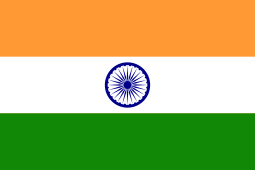The primary reason for the lack of competition in the mAB market is the entry barrier due to the current regulatory framework as per the current regulation of biosimilars.
- Bone Health
- Immunology
- Hematology
- Respiratory
- Dermatology
- Diabetes
- Gastroenterology
- Neurology
- Oncology
- Ophthalmology
- Rare Disease
- Rheumatology
In India, Patient Advocates Lobby for Modernized Biosimilar Development Standards
In India, an emphasis on outdated biosimilar testing has restricted market entry of these products and discouraged manufacturers, patient advocates contend.
Concerned about patient access to critical monoclonal antibody medications, including biosimilars, patient advocates in India have appealed to the country’s executive administration to spur reforms in biologics regulation to facilitate less costly and more rapid biosimilar development.
“We would like to bring to your urgent attention the unaffordable prices of biotherapeutics such as monoclonal antibodies [mABs],” said the group, which includes the Campaign for Access to Medicines, Devices and Diagnostics, India; Cure SMA Foundation of India; World without GNE Myopathy; and others.
Such conditions as cancer, COVID-19, arthritis, and lymphoma can be treated with mABs, which is why they are so important, the advocates state.
Indian regulators still rely on comparative clinical efficacy trials of biosimilars to demonstrate that they are comparable in safety and efficacy to reference products. The advocates note that evolving world-class standards for biosimilar development are tending away from strict requirements for comparative trials.
Although reference (originator) products undergo in-human trials to demonstrate and verify clinical value, biosimilars can largely be analyzed for comparability to the reference products in the laboratory, without the need for assembling large patient cohorts. This is because analytical testing of biologics has evolved to such a degree that in most cases it can provide much more sensitive and reliable biosimilar equivalence data than comparative clinical trials.
Advocate groups signing on to the appeal to Shri Narendra Modi, India’s prime minister, noted that the United Kingdom, following the Brexit departure from the European single market, announced it would discontinue strict reliance on comparative clinical efficacy testing for biosimilars. They also noted that the World Health Organization (WHO) is drafting guidance that endorses this approach to biosimilar development.
The WHO does not approve biosimilars although it does make recommendations of approved medicines that influence the medicines that doctors and health institutions around the globe select for use.
“An adequately powered comparative efficacy and safety trial will not be necessary if sufficient evidence of biosimilarity can be drawn from other parts of the comparability exercise,” the WHO wrote in the draft guidance.
Per-capita income in India is lower than in more-developed countries and that can add to the difficulty of affording biologics. The reform advocates cite a recent study that indicated that 80% of the global mAB market is centered in the United States, Canada, and European Union. And whereas registered mABs in the European Union and United States are 120 and 112, respectively; in India this number stands at just 36, the group said.
If regulations were more in step with modern science, biosimilars would become more numerous in India, they contend. “The primary reason for the lack of competition in the mAB market is the entry barrier due to the current regulatory framework as per the current regulation of biosimilars,” they state.
They explain that comparative clinical trials add significant expense and time to the development process that adds to the cost of biosimilars once they reach market and discourages producers from developing biosimilars in the first place. “Only those companies that have the deep pockets could develop biosimilar mABs and other biotherapeutic products.”
In a recent interview with The Center for Biosimilars®, Marta Baldrighi, PhD, spoke about the WHO's guidelines revision process for biosimilar development.
Newsletter
Where clinical, regulatory, and economic perspectives converge—sign up for Center for Biosimilars® emails to get expert insights on emerging treatment paradigms, biosimilar policy, and real-world outcomes that shape patient care.

